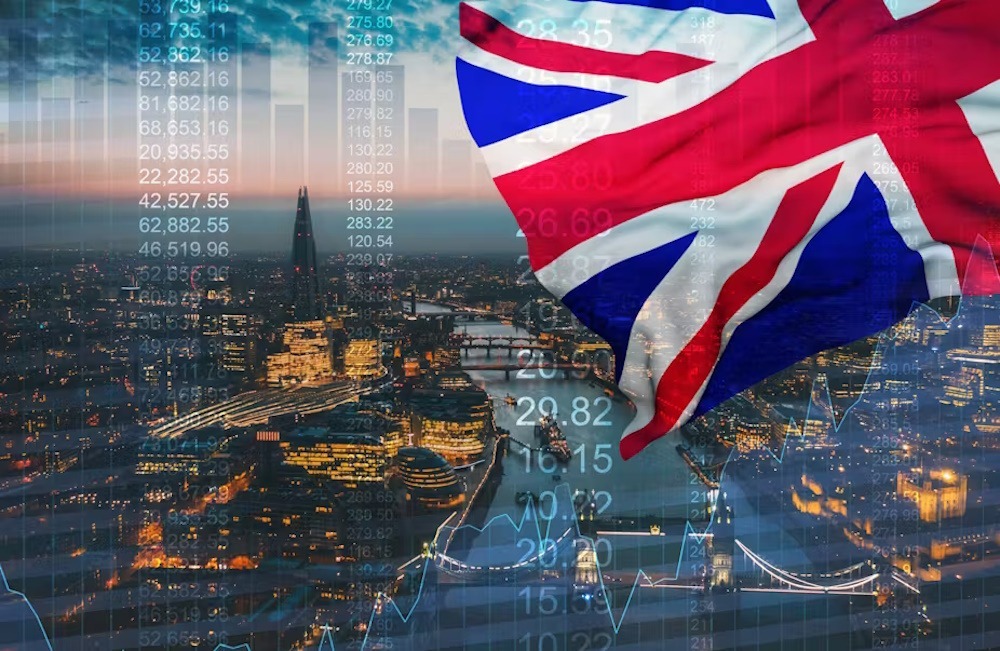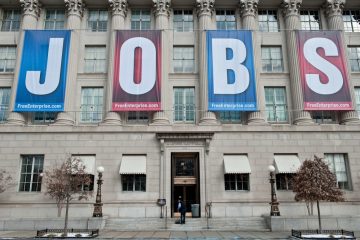The UK economy is expanding

The U.K.’s economy experienced a stronger-than-anticipated expansion in May, providing a boost for newly elected Prime Minister Keir Starmer. Starmer has made a commitment to enhance the country’s growth rate following a prolonged period of economic fragility.
The Office for National Statistics revealed that there was a 0.4% increase in gross domestic product in May compared to the previous month. In contrast to the 0.2% growth anticipated by a consensus of economists surveyed by The Wall Street Journal, the reported figure is more favorable and surpasses the stagnant growth observed in April.
The May rebound indicates that the U.K. economy has outperformed expectations in the first half of this year, following a contraction in the second half of 2023. In recent times, the economy has faced a string of setbacks. One of the most significant was the sudden increase in energy and food prices after Russia’s invasion of Ukraine. Additionally, the Bank of England took action to control the inflation by raising interest rates.
Nevertheless, the economic challenges faced by the U.K. extend beyond the recent events, reaching back to the global financial crisis of 2008 and 2009. These challenges also encompass the stagnation of business investment following the country’s decision in 2016 to exit the European Union.
With a strong parliamentary majority, the new government is optimistic about revitalizing the economy, although it must navigate through various challenges, such as significant debt levels.
According to Treasury Chief Rachel Reeves, growth has become our nation’s top priority. She made this statement in her inaugural speech after assuming office. We must act quickly.
Reeves, being the first woman to hold the post, has made a commitment to reform Britain’s planning laws, construct a substantial number of new homes, and permit the establishment of onshore windfarms.
Reeves has made it clear that the government has no plans to increase income taxes or sales taxes in order to address the issues of deteriorating public services and long waiting lists in the health system. Instead, it aims to increase tax revenues by fostering a faster-growing economy.
In line with economic principles, the Labour government has expressed its commitment to adhering to fiscal rules that are expected to limit spending. These rules include keeping the budget deficit at 3% of annual economic output and ensuring that debts decrease relative to the size of the economy over the next five years.
The government is also optimistic that increased political stability will bolster economic growth. Following a particularly tumultuous period in British politics, which saw the rise and fall of five prime ministers since the Brexit vote in 2016. According to some economists, a government majority of 172 legislators in the House of Commons is expected to bring about a more stable period, offering businesses more confidence when making investment decisions.
According to Robert Wood, chief U.K. economist at Pantheon Macroeconomics, the significant majority of Keir Starmer and the overall gains for left-leaning parties in parliament are expected to create a more stable and peaceful political environment, which in turn is likely to have a positive impact on business and attract more inward investment.
Following a period of decline in the last half of 2023, the GDP has experienced a growth of 0.9% in the three months leading up to May. This is the most rapid growth seen since January 2022, prior to Russia’s invasion of Ukraine.
In May, there was a 0.2% increase in industrial production compared to the previous month. Meanwhile, services, which have been a key contributor to economic output, experienced a 0.3% growth. According to the ONS, construction experienced its most rapid growth in nearly a year.
The economy experienced robust growth in May, with significant increases observed across all major sectors. According to Liz McKeown, the director of economic statistics at the ONS, many retailers and wholesalers experienced a positive month, recovering from a sluggish April.
According to recent reports, the economy has rebounded more quickly than anticipated, and experts believe we are heading towards a smooth transition. Inflation has also decreased to a manageable level, and unemployment is at an all-time low.
Investors are anticipating a potential boost for the new government in the coming months, as the Bank of England considers reducing its key interest rate. According to the IMF, the economy is projected to experience a modest growth of 0.7% this year. However, there is optimism that this growth will pick up pace in 2025, reaching 1.5%. This positive outlook is attributed to the combination of reduced borrowing costs and increased real incomes, which are expected to stimulate consumer spending.
In May, the annual rate of inflation hit the central bank’s 2% target, after dropping significantly from a peak of 11.1% in October 2022.
However, the BOE maintained its key rate at a 16-year high last month, with the expectation that inflation would increase in the second half of this year. Services prices, fueled by robust wage growth, continue to outpace the overall inflation rate, which has primarily decreased due to declining energy prices in global markets.
According to the bank’s Chief Economist Huw Pill, recent data suggests that inflation could persist at elevated levels for a longer period than expected, despite the possibility of a future reduction in the key rate.
“There is still some work that needs to be done,” he stated.









